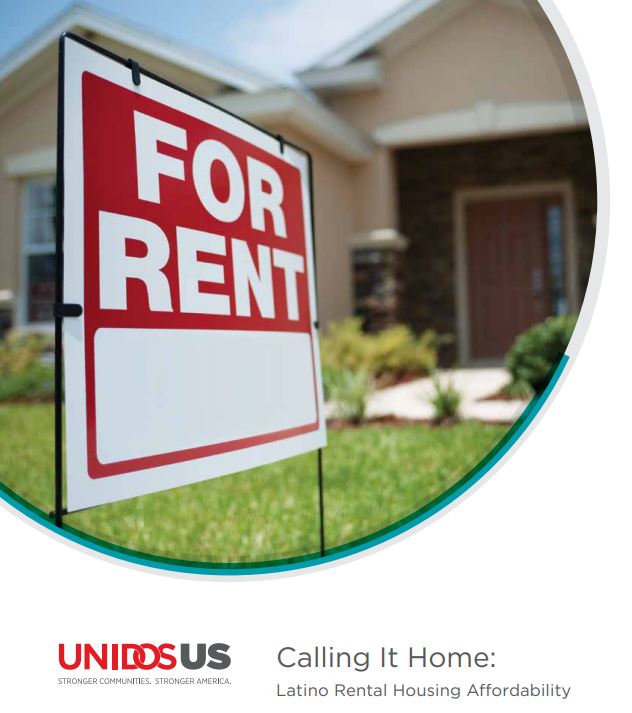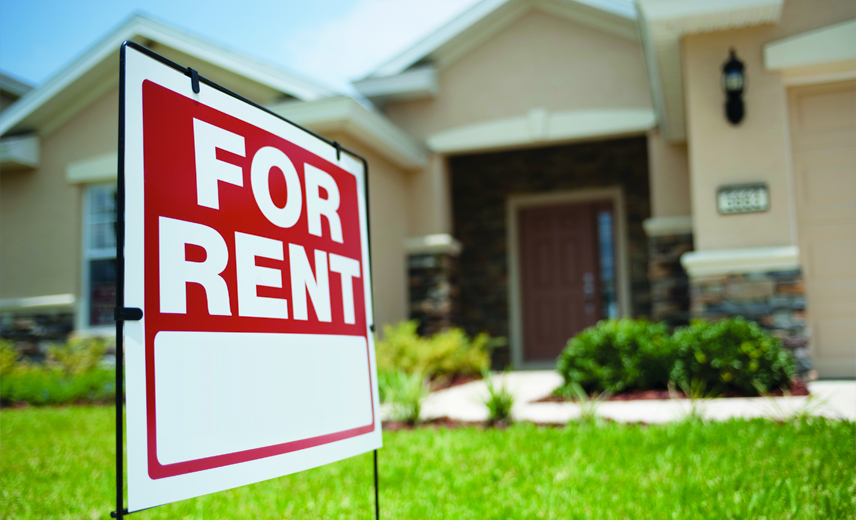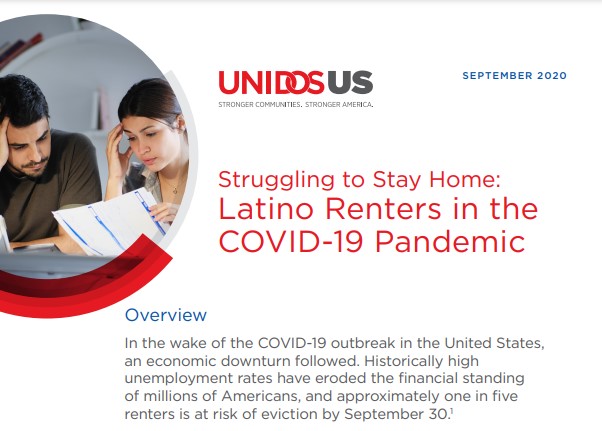How can we preserve the American Dream for Latino renters?
Affordable housing is set to be a key issue in advance of the 2020 presidential election. A panel of experts at the 2019 UnidosUS Annual Conference discussed prospects for expanded access to housing.
You can read a recap of the first part of this panel here.
By Stephanie Presch, Content Specialist, UnidosUS
During the second half of the housing plenary session at the 2019 UnidosUS Annual Conference, the presenters focused on the struggles faced by renters across the country.
Diane Yentel, president and CEO of the National Low-Income Housing Association, explained that people of color are overrepresented among extremely low-income renters.
Additionally, as Yentel explained, for every 100 of the lowest-income, seniors, people with disabilities, and families with kids—there are just 37 homes affordable to them. There is no state in the country that has a sufficient number of homes affordable and available to the lowest-income renters.
“Nationally we have a shortage of seven million homes for the lowest-income people,” Yentel told the audience.
While this crisis has overwhelmed the national housing market, it’s important to note that the situation wasn’t always this dire. As Yentel noted, in the late 1970s, there was a surplus of homes for the lowest-income people, and nearly everyone in the country was housed.
“The primary difference between then and now is federal funding for programs that make homes affordable for the lowest-income people,” Yentel explained.
Even though federal funding for housing assistance still exists, only one in every four households that needs housing assistance and is eligible for it actually receives it. This means that 75% of those who are eligible for housing assistance don’t receive anything.
To end the crisis, the solution is clear—we have to fund the programs that support working-class families. However, the Trump administration has kept these programs squarely in the line of fire. For example, in 2017, the Trump administration proposed a 15% reduction in the Department of Housing and Urban Development (HUD)’s budget. Additionally, the administration has proposed increasing rents for people in subsidized housing, introducing work requirements, and evicting mixed-status families—all measures that would worsen the rental housing crisis rather than make it better.
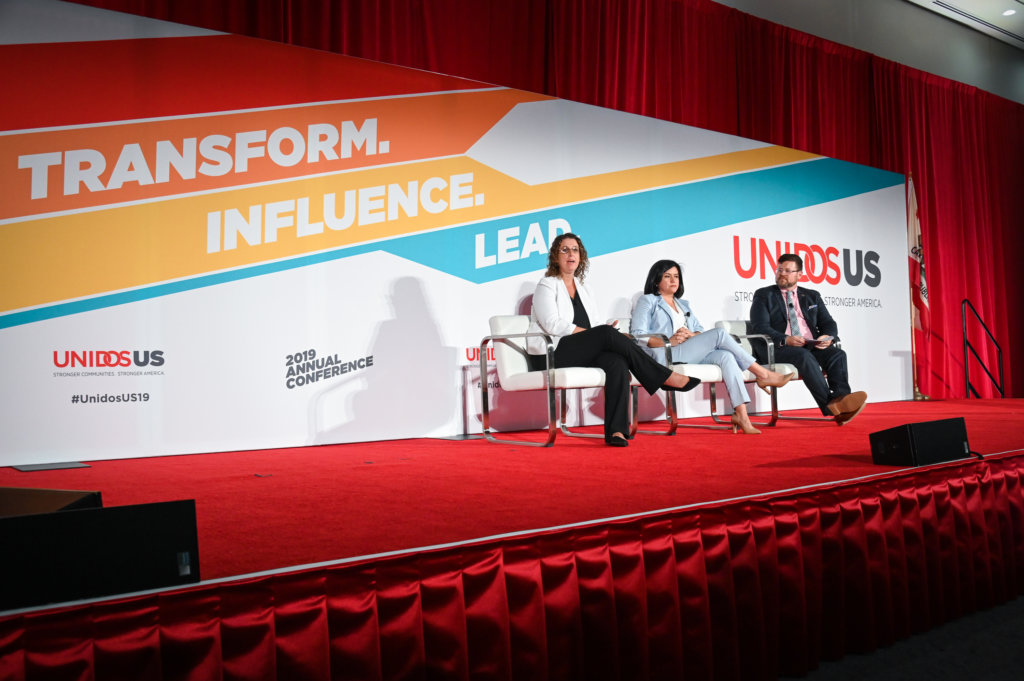
HUD’s proposal to evict migrant families would lead to 100,000 people—55,000 of whom are U.S.-citizen children—being forced onto the street.
Yentel explained that when her organization began gathering comments to send to HUD, their effort quickly surpassed HUD’s previous comment record of 1,000 with an astonishing 33,000 comments.
She also made sure to emphasize a crucial victory—that the year the Trump administration had tried to cut HUD’s budget by 15%, the year actually ended with a 10% increase.
Yentel concluded her presentation by urging the audience to stay involved. “There’s more coming,” she told them.
Engaging the community
The other speaker on the panel was Lourdes Castro Ramirez, president of the University Health System Foundation in San Antonio, Texas. Castro Ramirez is a former principal deputy assistant secretary for HUD, and recently served on the mayor’s Housing Policy Task Force in San Antonio.
San Antonio is growing by 66 people per day, and by 2040, will have grown by a million people. In response to this growing need, the mayor of San Antonio created a task force that would gather input from the community and work to address their needs.
The task force was charged with coming up with a “comprehensive and compassionate housing policy framework for the city of San Antonio,” according to Castro Ramirez. This framework was meant to prompt participants into thinking about housing as a spectrum ranging from homelessness to homeownership.
The task force was composed of five civic leaders, with Castro Ramirez as chair. The task force held a number of meetings for public input, receiving a total of 300 recommendations by the end of the process.
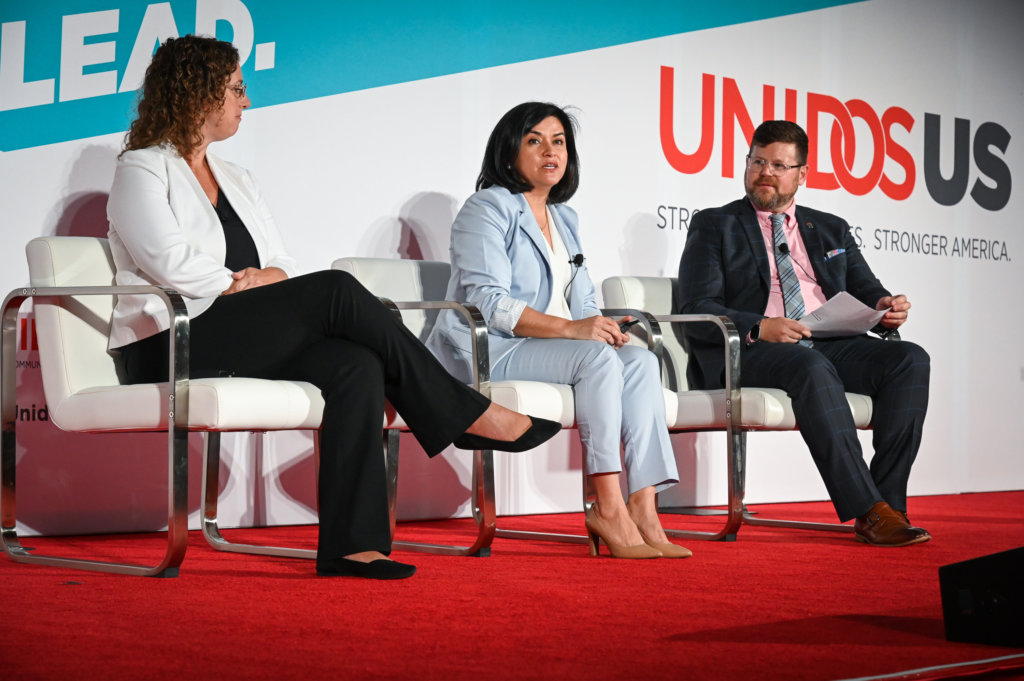
Some of the top recommendations that the community identified included efforts to make the system more effective, funding strategies for affordable housing, and efforts to prevent people from losing their homes.
Overall, committing more dollars to affordable housing was seen as key. Castro Ramirez added that while incomes are increasing, housing prices are increasing at a much faster rate, creating pressure on families.
Housing affordability is typically defined as spending approximately 30% of income on housing. By that measure, San Antonio is struggling to provide homes that its residents can afford.
“In San Antonio, we found that 165,000 households are cost-burdened,” Castro Ramirez explained. Of those 165,000 households, 21% are homeowners and 48% are renters.
“This adds up to one of every three households, and one out of every two renters in the city,” Castro Ramirez added.
Federal funding at the local level has been steadily decreasing, as Castro Ramirez points out. However, her work with the task force has led to a local victory.
“For the first time in many years, the city committed $25 million for affordable housing,” Castro Ramirez told attendees.
Unidos US lifts up voices from our community
UnidosUS released a new report on September 27 called Calling It Home: Latino Rental Housing Affordability. The report examines Latinos’ experiences renting their homes, and lifts up stories from members of our community across the country.
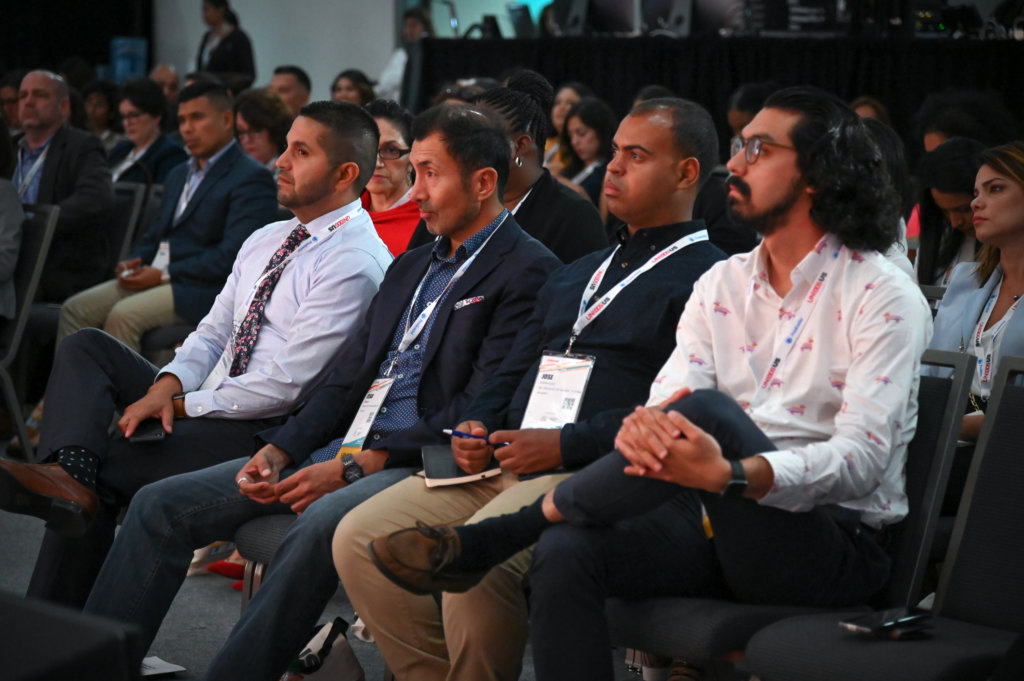
The report found that in 2017, more than half of Latinos across the nation spent more than 30% of their income on rent, while 28% of Latinos spent more than half their income on rent. In some of the stories collected, people recounted that they spent as much as 75% of their income on rent.
The high cost of housing is threatening the economic security of our families, limiting options to find an affordable home, and hindering their ability to save for a down payment on a home or tuition for their children to attend college. In every story collected, Latino families said they wanted to “stop throw[ing] away their money’ on “someone else’s home” to buy a home of their own, but also said it would be hard to find a home they could afford to buy.
As we get closer to the 2020 elections, we will continue to amplify the voices of our community in the face of this critical issue and we will continue to work hard to help our families access affordable homes.
You can watch the rest of the conversation from our 2019 housing plenary session on our YouTube channel.
